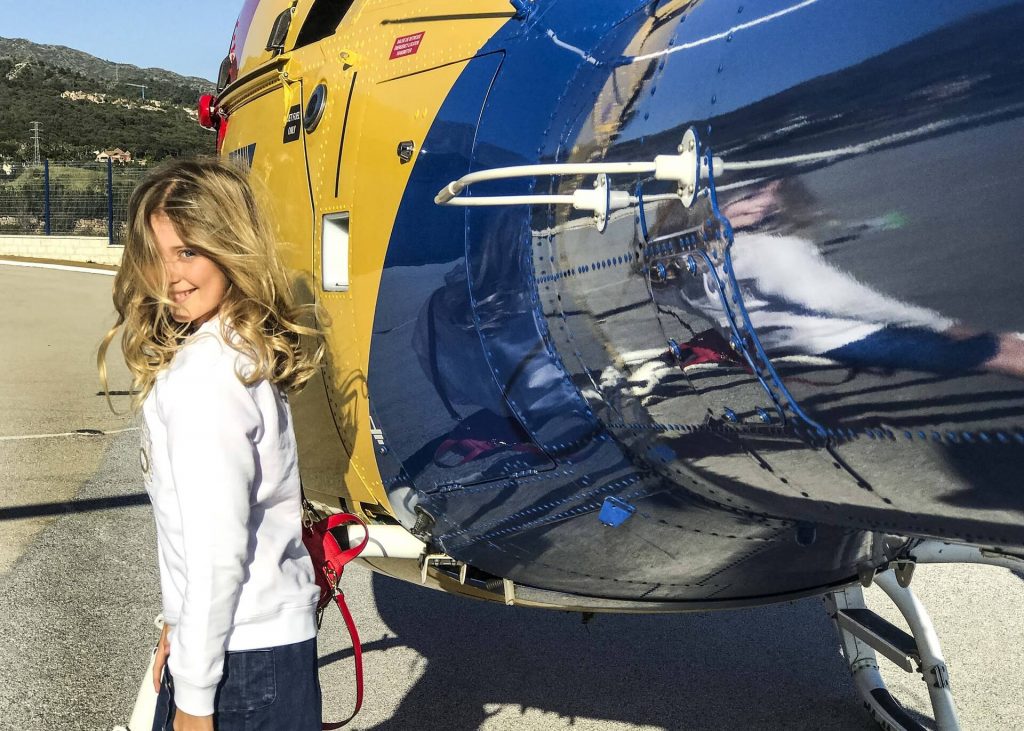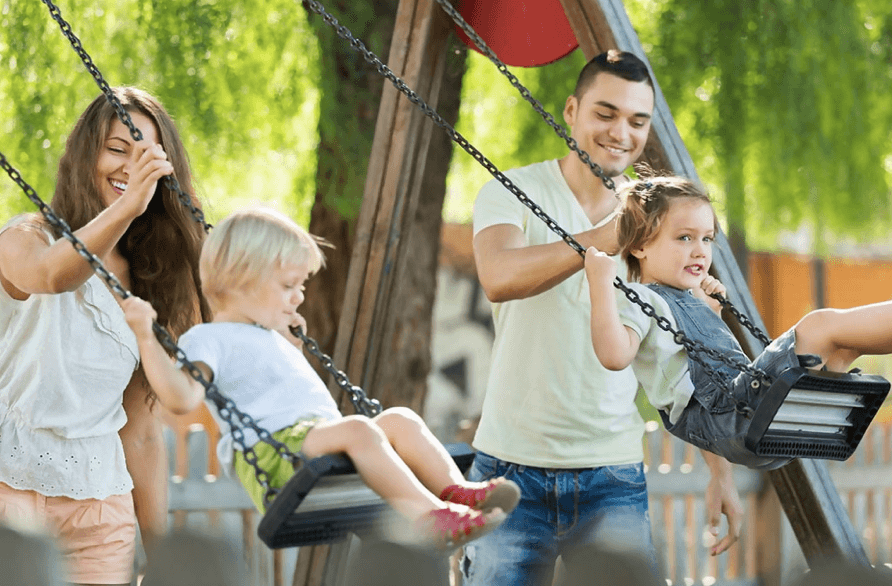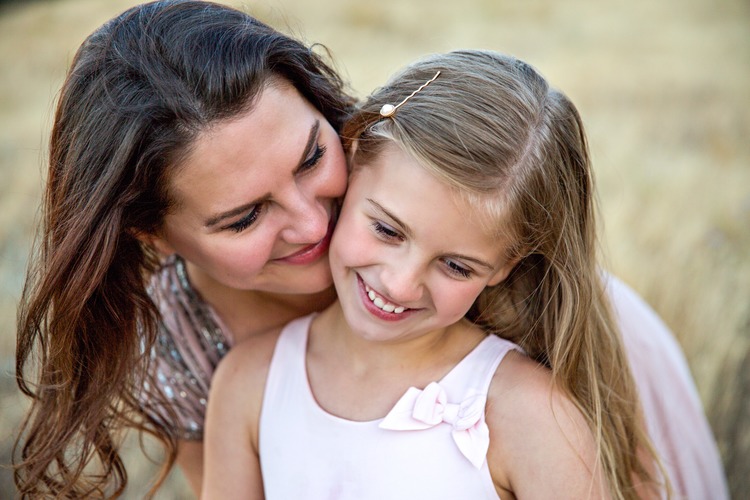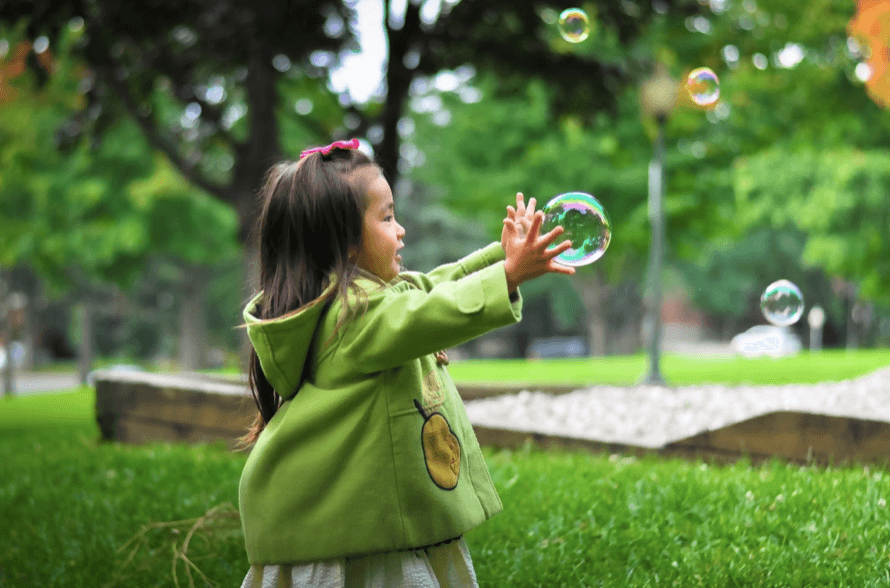Helicopter Parents: Meaning, Effects, Experts Tips

Helicopter parenting is a style where a parent always seems to hover close by their kids; always watching, trying to perfect them, resolve their problems, and decide everything for them. The initiative and independence of the child is restricted.
Kids of a helicopter mom and dad are more likely to become anxious and depressed. Their decision-making skills tend to be poorer than their peers. They lack a sense of responsibility. Many resent the restrictions that they view as unnecessary and embarrassing and relationships with their parents suffer.
Here’s how to know if you’re a helicopter parent and what to do to prevent limiting your child’s independence too much without compromising their safety and success.
We have included excerpts from researches on Helicopter Parenting and its Effect on Well-Being and Can a Parent Do Too Much for Their Child? conducted by Cambridge University, Keene State College and the American Psychological Association to give parents a complete picture based on the findings of experts of what helicopter parenting is, how it affects the child and why it is better to abandon this style of parenting.
Contents:
- What Are Helicopter Parents?
- Who Is the Typical Helicopter Parents?
- Recognizing Your Child’s Basic Needs
- Effects on Your Child’s Life
- Consequences of Helicopter Parenting
- Tips to Avoid Being a Helicopter Parent
- Final Words of Advice
What Are Helicopter Parents?

Prostock-studio/Shutterstock.com
The helicopter parenting definition was first used in a book published in 1990 about how to use love and logic to prepare children for healthy independence and success. Ten years later, the popular media started to use the buzzword too. Family counselors tell us that a helicopter parent is someone who monitors their child’s experiences extremely closely and has an uncontrollable impulse to become involved.
However, their involvement is based more on fear and anxiety than a wish to guide and interact. Helicoptering is characterized by a parent hyper-focused to protect, control, and perfect a child, sometimes to make the parent feel better about him- or herself.
Over-emphasizing the successes and failures of children is another hallmark of overparenting, which places stress on the child to perform to the parent’s often narrow definition of achievement. In the process, they restrict their child’s autonomy, which has consequences that we will come back to later.
Helicopter parents go well beyond measures associated with responsible parenting. An example is a need to know everything about a child’s life and allowing the child no initiative or decisions.
The general consensus is that helicopter parenting has increased in the past few decades.
See what the news media had to say about the trend here:
According to the ABC News channel, helicopter parenting can be ruining a whole generation of children:
In many cases, kids are not allowed to walk to school, play, or do anything by themselves. While times have definitely changed, parents are more stressed, and there seems to be more dangers lurking around, everyone reacts differently to the new competitive and fast-paced environment.
Many parents become over-protective, trying to over-perfect their children to cope and perform better in this crazy place. Their intentions may be good, but they don’t understand that the approach is not the best for their kids over the longer term to prepare them to stand on their own feet when the time comes.
Who Is the Typical Helicopter Parents?

Prostock-studio/Shutterstock.com
There’s a thin line between a helicopter parent and a supportive parent. Because of this, helicopter parents often don’t even realize they’ve crossed that line until their kids start avoiding them in public, avoid attention at home, or stop doing things they once enjoyed.
If you’re wondering, several signs help reveal whether you’ve adopted a helicopter parenting style. The following list describes eight signs of the typical helicopter parent:
- You fear the world is a dangerous place and go to excessive lengths to ensure your child is safe.
- Feeling exhausted staying up late to finish and correct your child’s homework.
- You don’t encourage or allow your kids to help around the house or yard because it’s dangerous.
- You use a secret webcam to observe your kids when you’re not home.
- You get involved in your child’s confrontations at school by immediately taking their side. You also confront the other child’s guardian(s).
- You speak for your child when other adults (like a teacher) ask them a question.
- When your child isn’t accepted, you contact the coach, principal, or chairperson of the department and demand a different decision.
- You constantly monitor your child’s Internet, social media use, and movements without just cause or reason.
Helicopter parents have the best intentions. However, studies show that this parenting style negatively affects a child’s well-being.
Helicopter parenting makes children overly dependent on their parent’s support. Giving your child the space they need to explore the world a little more independently is a better way to strengthen your bond while allowing your child to discover new skills like resilience and resourcefulness.
Recognizing Your Child’s Basic Needs

Prostock-studio/Shutterstock.com
Children have basic needs that change slightly as they get older but some needs are always important.
The Need for Autonomy
A child requires autonomy, that is, the ability to act on the things that interest them and their values. Autonomy helps kids to develop life skills like confidence. This basic need is a crucial element that prepares children for adulthood.
The Need for Confidence
Children need to build confidence in their abilities to grow into healthy adults. However, this basic need is something parents must allow their kids to develop at their own pace. Give your children the space to make their own choices about the interests they wish to pursue.
The Need to Feel Loved
Every child needs to feel loved and cared for. Parents must recognize this and try not to question or dismiss a child’s choices and preferences (within reason).
Fostering an environment where you support your child’s basic needs gives them freedom (and you the space) to support and monitor their success.
Effects on Your Child’s Life

Prostock-studio/Shutterstock.com
A study by a research psychologist at the Keene State College in New Hampshire found that 10 percent of the college students who participated had a helicopter mother and/or a helicopter dad. These helicopter parenting statistics are concerning when one considers the potential negative influence on the child.
Research also showed that a parent who is too involved or excessively strict, watchful, and prescriptive undermines the basic needs of a child instead of providing for and protecting these qualities. As a result, kids with helicopter parents are more likely to be depressed or anxious. They are generally less satisfied with life.
Also sometimes referred to as the snowflake generation, or snowflakes, some children of «parental helicopters» can have an overinflated sense that they are special and unique, they feel entitled, easily become emotional and offended, and find it difficult to handle criticism.
They lack the confidence to try new things and pursue their interests on their own. Kids who are over-parented also find it more difficult to make decisions and solve problems. They tend to disengage from peers and activities at school.

Prostock-studio/Shutterstock.com
Relationships between helicopter parents and their «special snowflake» are often strained. As a result, the family unit is under pressure. The additional stress can cause parent to behave badly too. They are more frustrated, prone to anxiety and depression, anger outbursts, and alcohol use. Struggling caregivers exert their insecurities and irritation onto their kids.
Children often react with similar behavior issues than their parents display. They crave independence and when they become teenagers often break free without regard for their safety.
As a child typically experiences over-parenting as a form of distrust and disapproval, their willingness to confide in their parents suffer. Younger children are less eager to play and engage with a helicopter parent, while older children don’t want to be seen with an interfering or overbearing adult and avoid shared activities.
Therefore, while you should always be there for your kids, allow them to take the initiative.
Consequences of Helicopter Parenting Style

Prostock-studio/Shutterstock.com
Many studies show the negative consequences of a helicopter parenting style, particularly on the developmental psychology of a child.
According to a study called Does “Hovering” Matter? Helicopter Parenting and its Effect on Well-Being, “helicopter parenting is negatively related to psychological well-being and positively related to prescription medication use for anxiety/depression and the recreational use of consumption pain pills.”
In another study titled, Can a Parent Do Too Much for Their Child? An Examination By Parenting Professionals of the Concept of Overparenting, survey data revealed that based on certain types of parenting actions, specific actions of those surveyed indicated helicopter parenting. In addition, particular beliefs of those surveyed came about due to helicopter parenting.
A child with helicopter parents will miss out on certain life experiences. However, the major downside here is that helicopter parenting can cause children to develop poor coping skills, low self-esteem and miss significant developmental milestones.
Ultimately, the consequences of helicopter parenting can be positive if the child sees their parent’s actions as supportive. However, if the child perceives the actions of their parents as controlling, they won’t thrive in their development or growth.
Tips to Avoid Being a Helicopter Parent

Prostock-studio/Shutterstock.com
Here are 12 tips to help parents take a step back and avoid being a helicopter parents.
Gauge your kid’s maturity and level of responsibility
Every child comes with their own personality and develops decision-making skills at their own pace. Some kids are like adult children, while others need a little more guidance.
As parents, it’s more important to observe your children. Instead of being one of those hovering parents, take a step back. Gauge their level of maturity and responsibility and react without being overly involved. This in turn teaches children the essential life skills they’ll need.
Observe other parents, which can help determine your actions with your kids.
Stop hovering and show trust
Many helicopter parents constantly hover around their children, especially when it comes time for school projects, homework, and everyday decision-making. The issue with this approach is that when (or if) helicopter parents do show trust in their child, it often backfires. The child questions whether their parents actually trust their abilities or judgment.
It’s okay to be involved in your children’s lives, but giving them your trust is crucial to teach kids essential skills.
If you have reason to believe your child is hanging out where they’re not supposed to or engaging in poor online etiquette, try the Findmykids app. This parental control app helps keep your kids safe and secure — without being a helicopter parent. Easy to set up, the app tracks your child’s location history and shows you mobile app usage statistics. And the best part? If your child is ever in danger, they can send an SOS signal for help.
Maintain a basic and consistent routine
Everyone needs downtime to recharge after a busy day or week. Overly involved parents often create detailed and rigid family schedules so that they can monitor their children at all times.
Check in with other parents to see their child’s schedule, and figure out how to adopt less controlling measures. Try to stick to a defined plan but be flexible and allow for changes. Also, encourage your child to tell you what’s going on in their lives from the time they start elementary school.
Have the plan to develop autonomy
Many parents involve themselves in their child’s life, and to a certain extent, this is normal! However, it’s important to remember that your purpose as a parent is to teach and guide your child, not to regulate their life or their interests and goals.
Try to facilitate rather than prescribe. Think of yourself as the pit crew at a sports car race. Always check for safety and performance but prepare your kid to function independently.
Allow your child to make decisions
Make sure your child develops problem-solving skills and how to take educated risks. These are perhaps the most important abilities that any person can possess, together with social skills. It takes practice throughout the growth stages. Give your child the opportunity to learn essential life skills depending on his or her level of maturity.
Teach your child the consequences of his or her choices and actions
While some parents hover in an attempt to prevent their children from making any mistakes, it’s essential to teach their child valuable life lessons. Always define your boundaries and limits and avoid dealing with or handling the repercussions of poor behavior and decisions on behalf of your child.
To grow into a functioning adult, your child must learn how to face the results of their actions. Therefore, how you handle teaching consequences to your child is an important part of being a parent.

Prostock-studio/Shutterstock.com
Allow your kid to fail
Challenge your and others’ narrow definitions of success. Life, growth, and achievement are not all about grades and medals. Don’t force your ideals and interests onto your child. Let your child take the lead to determine their own values and goals.
Don’t let your impulses get the better of you
Take a step back when you feel the need to interfere. Self-regulate your feelings and behavior. Never react impulsively. Discuss concerns candidly with your child. Listen to their explanations and ideas.
Regulate your emotions and fears
It can be very difficult but depression, anxiety, anger, and other negative emotions can impact everyone around you. As much as possible, keep negativity away from your children, even if you’re going through a tough time. Rather be a generator of positive energy.
Monitor your child’s Internet, social media use, and movements
Assess your child’s ability and level of responsibility. Discuss with them the potential dangers that lurk online and elsewhere. Describe real or hypothetical situations. Emphasize strategies to avoid getting into a difficult spot. Encourage asking for help if needed.
Practice being objective
Put yourself in your child’s shoes and consider your view from an uninvolved perspective. Does your child have a logical explanation for a decision or behavior? What are the risks? Are you overreacting? What is the best way to handle a problem or disappointment? What can you and your child learn from it?
Enjoy your kids and have fun together
Love and accept them unconditionally. It is part of their growing process to make mistakes. Teach them to own up to it and move on. They are your biggest gift in life!
For more tips, listen to clinical psychologist and life coach, Dr. Paul:
As much as you can afford and feel comfortable with, try more free-range parenting. Encourage your children to function independently and with limited supervision. Always encourage them to approach you for help and advice but guide and teach rather than limit and prescribe. Balance freedom and a relaxation of rules depending on their level of responsibility and maturity. These are the ways to start turning around generations of overparenting.
You will notice improvements in your stress levels that will give you more opportunities to enjoy sharing experiences with your kids.
Final Words of Advice

Prostock-studio/Shutterstock.com
An excessive parenting style — like helicopter parenting — is detrimental to the healthy development of children.
You might have good intentions as a helicopter parent. However, always hovering close by teaches your child to resist your presence. It also prevents your kids from developing initiative and independence, two key skills they need as they grow.
It’s crucial to remember that being firm, having rules, enforcing discipline, and monitoring a child’s behavior are important parenting tools. However, if these parenting tools become more than what is needed to protect and nurture a child, it can cause unintended negative impacts on their emotional growth and relationships.
Try to balance monitoring and restricting your child with the level of responsibility and maturity your child displays.
Remember: using a parental control app like Findmykids can help! Apps like this one provide the GPS location of your child. You can also use Findmykids to monitor online activities and movements to keep your child safe.
Stop overprotecting the child and adversely influencing the development of their personality! Always know where they are now and what is happening around them without unnecessary calls and SMS using the Findmykids app.
Using these types of apps sparingly and with good reason is critical. This approach builds trust and shows your kids that you care and unconditionally accept them.
Проверьте электронный ящик



















